The Arch of Titus commands a vantage point at the highest space of the Sacred Way. It oversees the Forum, directing eye-lines to the dedicated temple of Titus and his father, Vespasian, at the other extreme.
Constructed primarily from Attic marble from Mount Pentelicon, the Arch of Titus also includes nineteenth-century travertine additions. It has a solitary gateway, bordered by pylons, each integrating two fluted columns of the Composite Orcier. This is a Roman blend of Ionie and Corinthian, believed to have been invented during Augustus’s reign. It showcases spirals from the former Order and the acanthus leaves from the latter.
The Arch of Titus was erected to celebrate Titus’s conquest of the Jewish Revolt and the subsequent destruction of Jerusalem in A.D 70. The Arch of Titus is embellished with a plethora of sculptures. Besides, the upper horizontal storey displays inscriptions that indicate that the monument was dedicated to Titus’s memory by his brother and successor, Domitian.
The Arch of Titus showcases a Triumphal procession in a frieze. It includes a figure reclining in a litter, possibly representing the captive River Jordan. The ceiling inside the opening is vaulted with sunken squares and is adorned with a relief of the emperor being carried to heaven by an eagle. The triangles between the curved parts of the arch and its right-angled framework depict winged Victories holding standards.
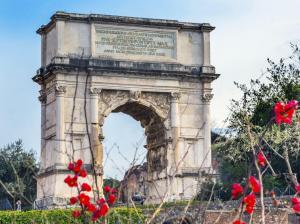
Arch of Titus Red Flowers Roman Forum Rome Italy. Erected in 81 AD in honor of Emperor Vespasian and son Titus for conquering Jerusalem destroying Jewish temple in 70 AD.
The Reliefs
One relief shows young men wearing laurel wreaths, carrying the spoils pillaged from the Temple of Jerusalem. The other relief portrays the Goddess Rome leading the Triumphal four-horse chariot of Titus. The Victory, escorted by Honour and Courage (Virtus), places a wreath upon his head.
The spoils carried in the procession include silver trumpets, used to summon the hosts of Israel. The golden Table of the twelve loaves of Shewbread, renewed in the Temple every Sabbath day, was part of the spoils. The golden candlestick or Menorah, with its seven branches, was the most sacred object possessed by the Jews. It was also part of the spoils taken by Titus. The spoils were initially placed in the new Temple of Peace, part of the Forum of Vespasian. Over time, the spoils were lost and their exact location remains a mystery. They have been rumored to be at different locations, including the Lateran Palace at Rome.
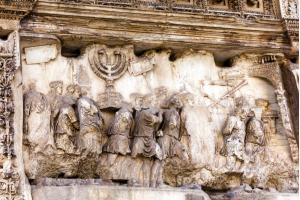
Titus Arch Roman Loot Menorah Temple Jerusalem Forum Rome Italy. Erected in 81 AD in honor of Emperor Vespasian and son Titus conquering Jerusalem and destroying the Jewish temple in 70 AD.
The Arch of Titus’s reliefs display an advancement towards illusion, mirroring slightly earlier mural paintings at Pompeii. The illusion of movement seen through a window silhouetted against the sky is effectively captured. The cleverly superimposed planes provide a sense of depth. The Arch of Titus’s sculptures laid the groundwork for the complete conquest of the problem of perspective, achieved by Florentine Renaissance sculptors, fourteen hundred years later.
The Middle Ages
During the Middle Ages, the Arch of Titus, like the Colosseum, was incorporated into the fortress of the Frangipane family and thus survived.
In 1882, Pope Pius VII commissioned Giuseppe Valadier to restore the pillars damaged by the creation of a small room inside the archway. Its current integrity is due to Valadier’s comprehensive archaeological restoration.
Arch of Titus Photo Gallery:

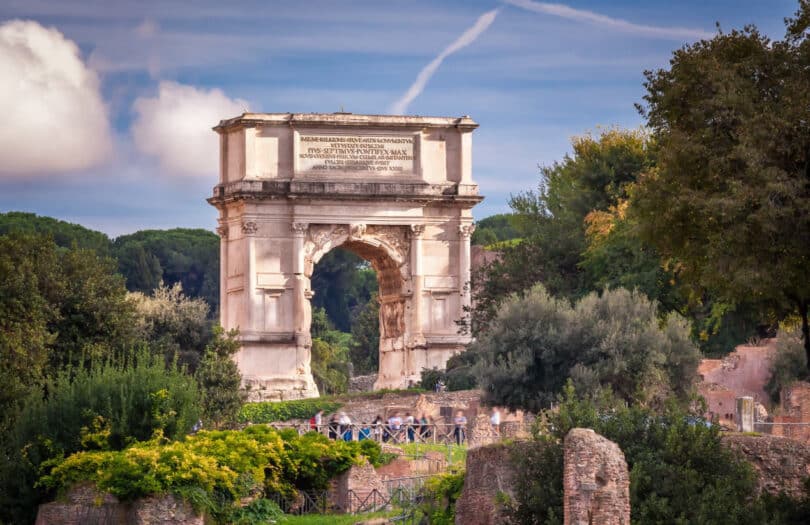
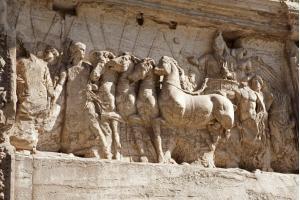
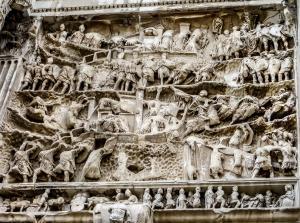
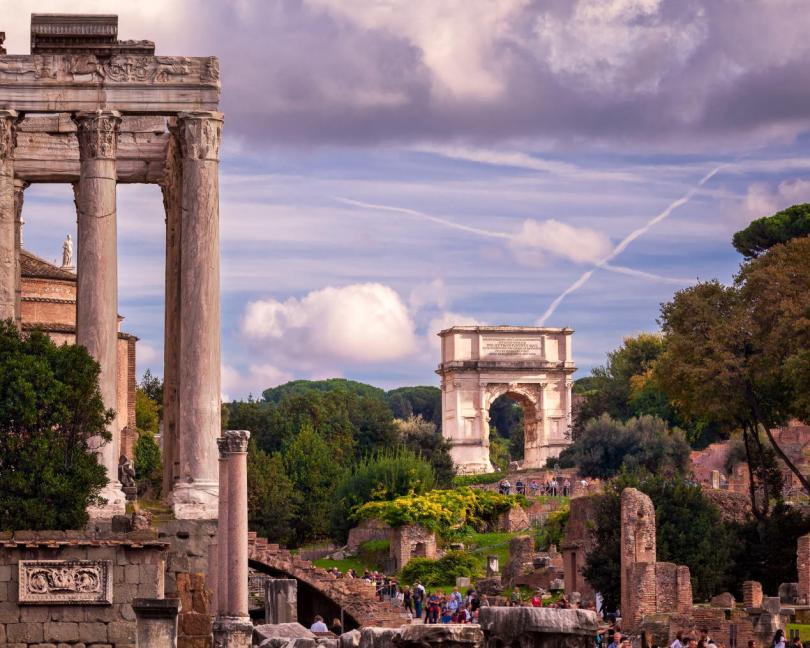
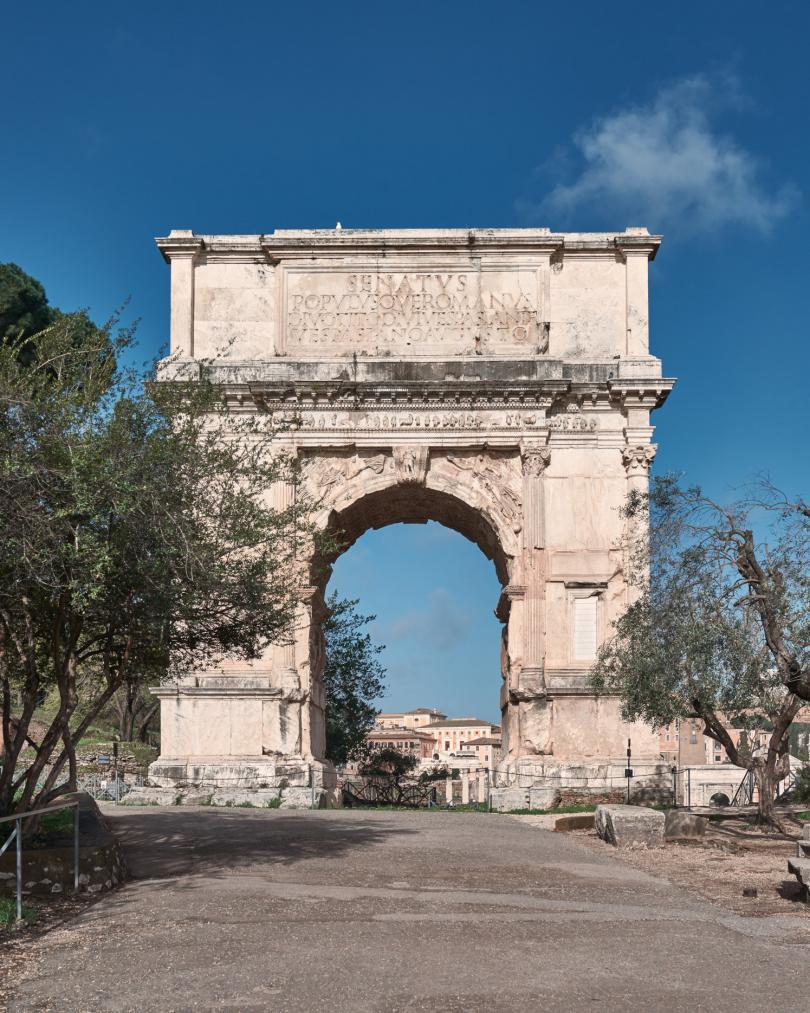
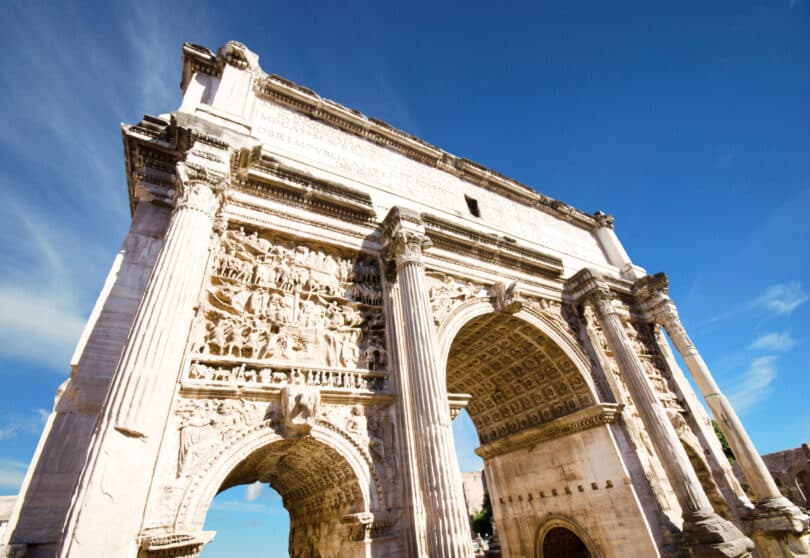
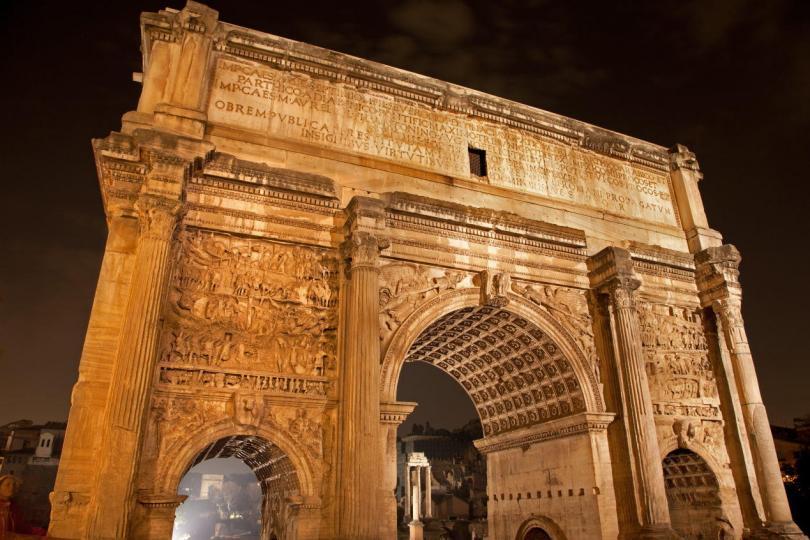
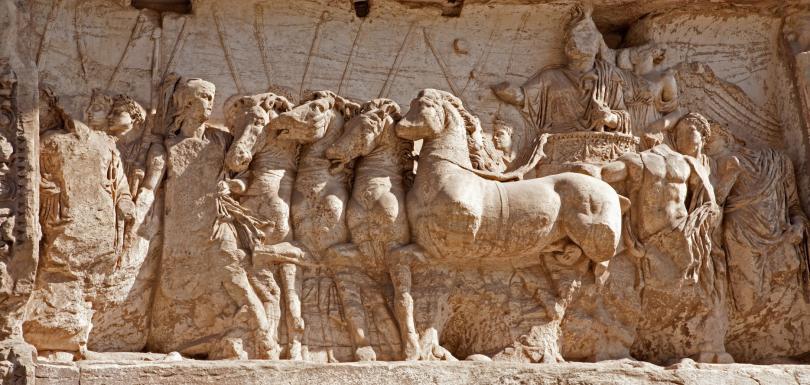
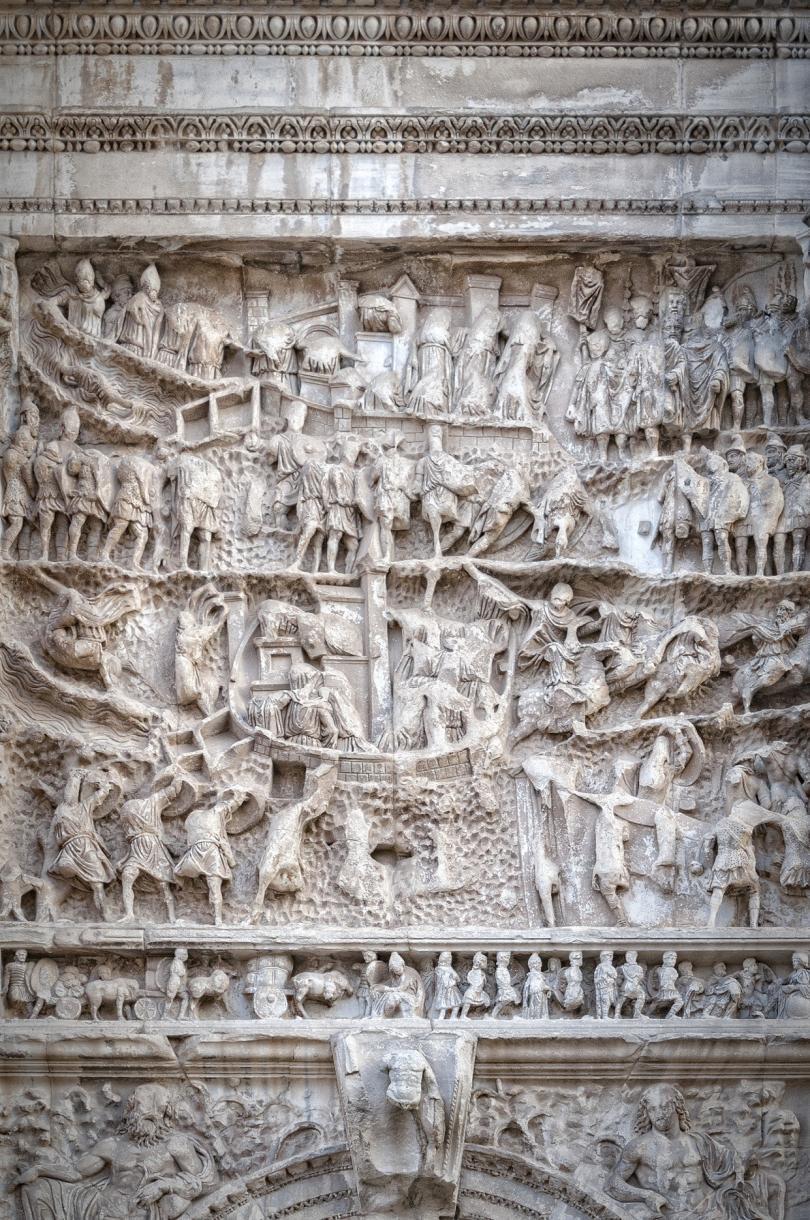
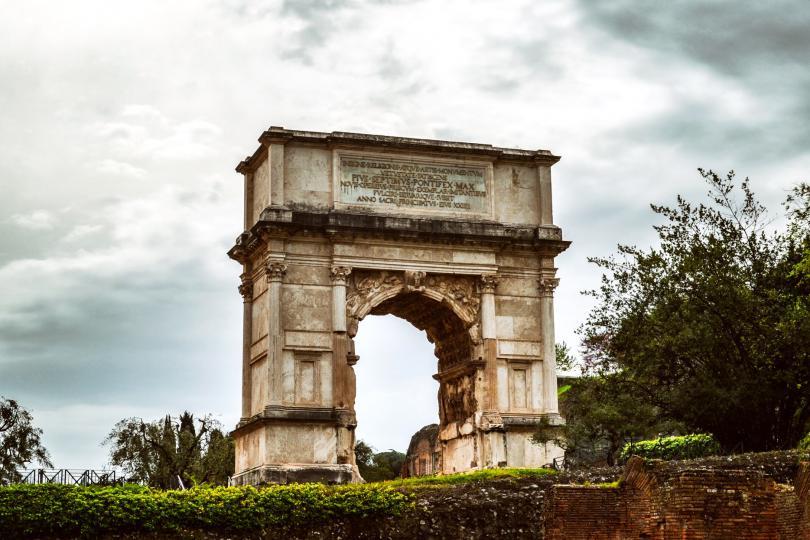
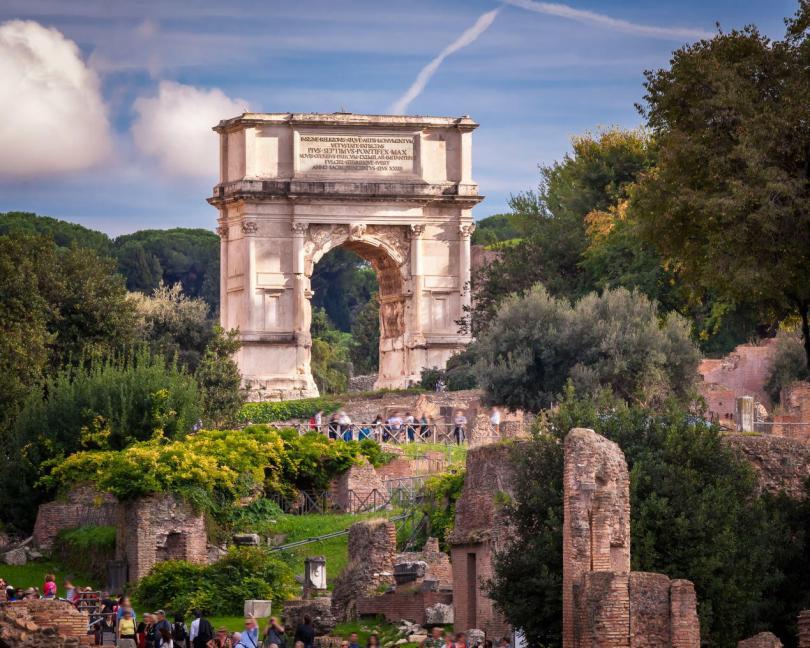
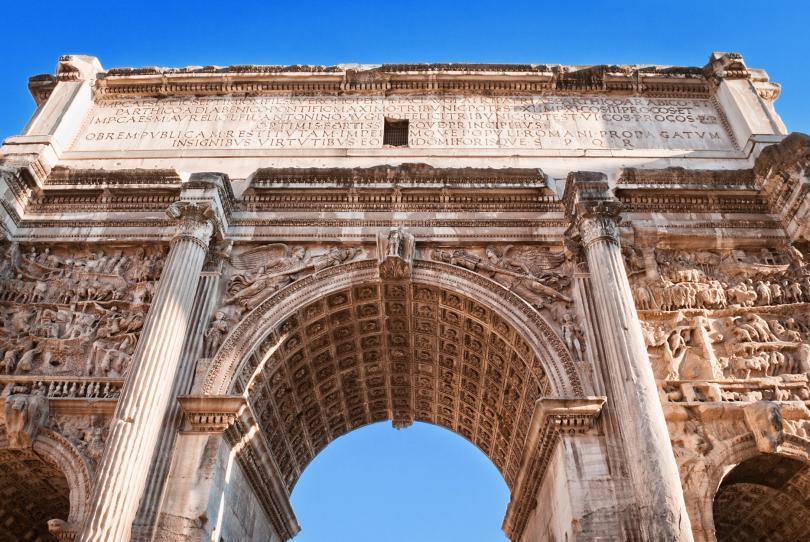
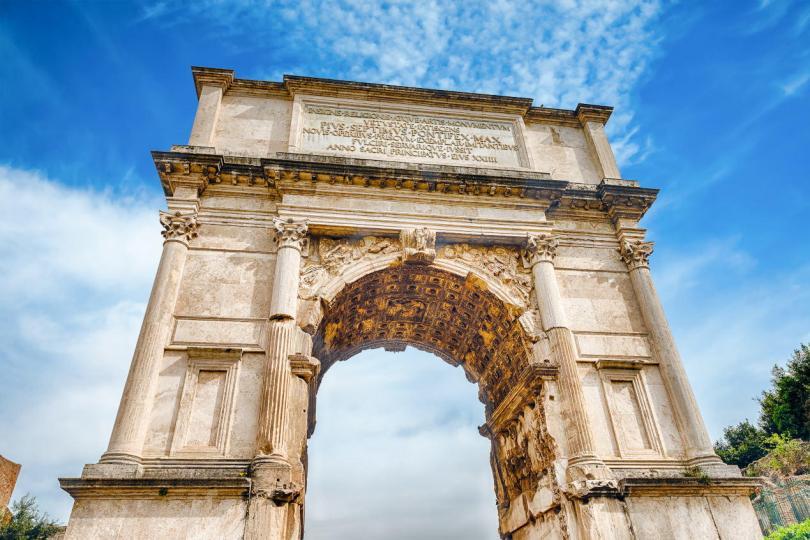
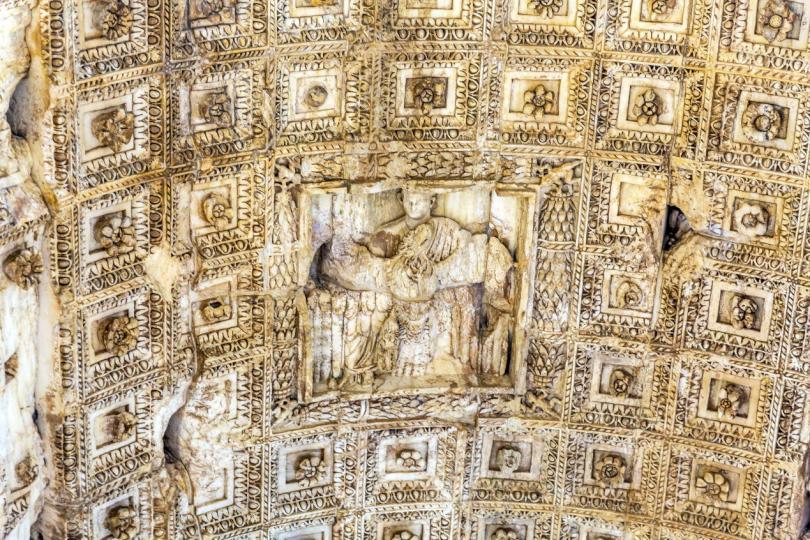
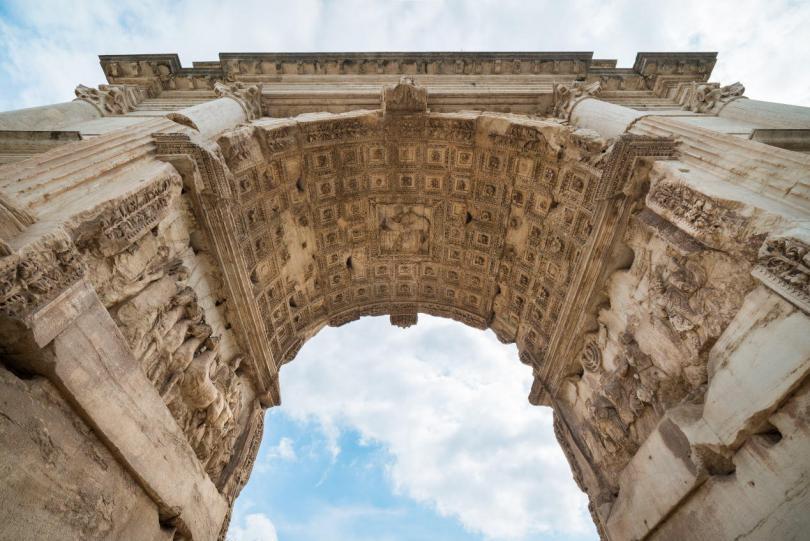
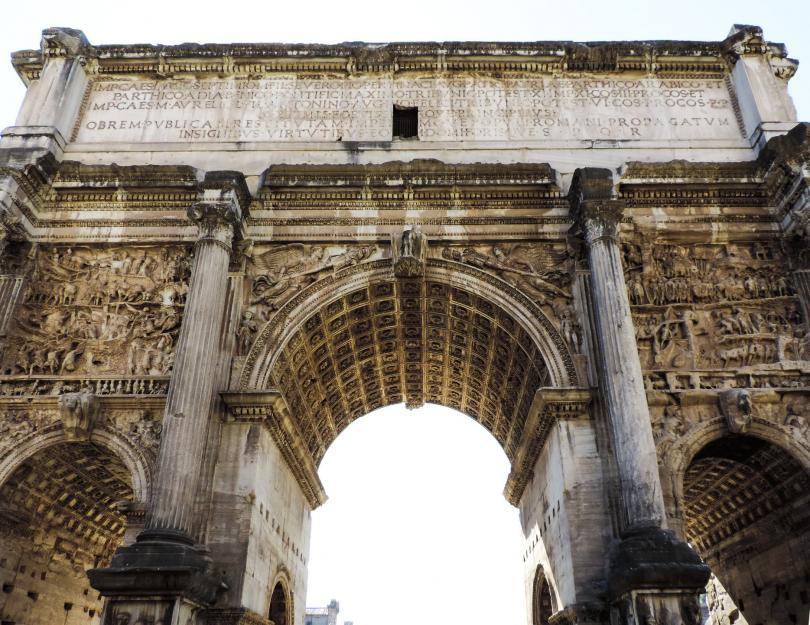
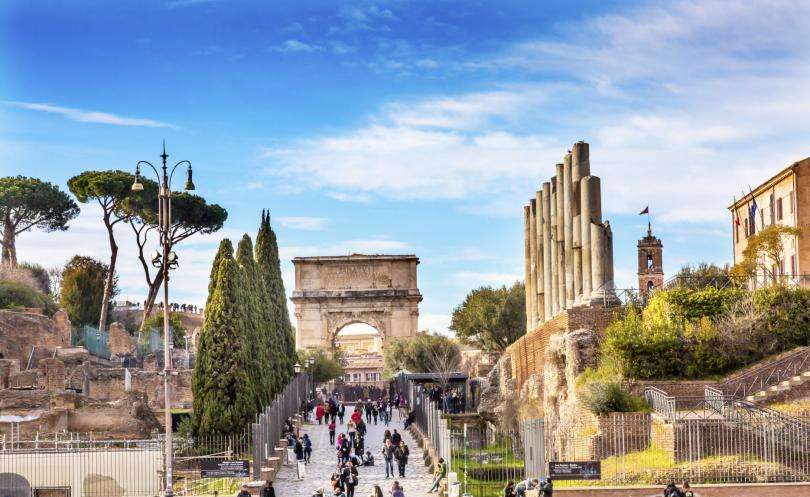
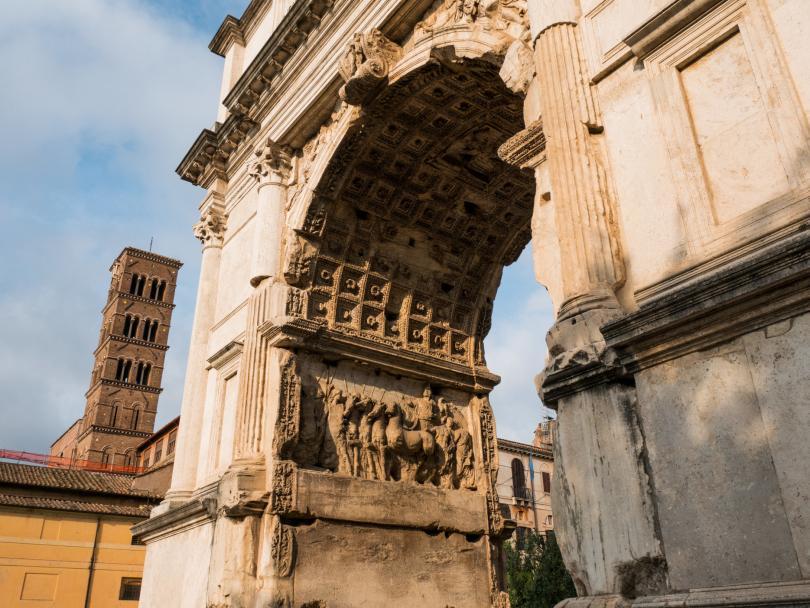
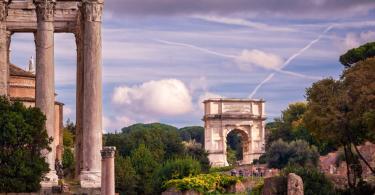
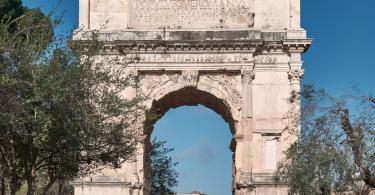
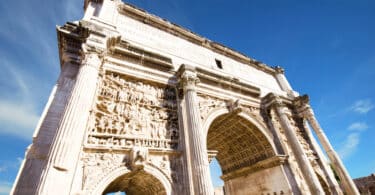
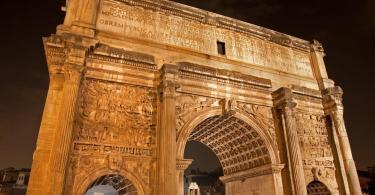
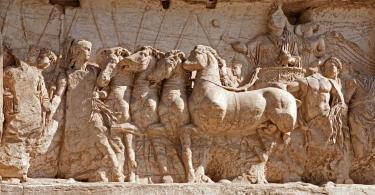
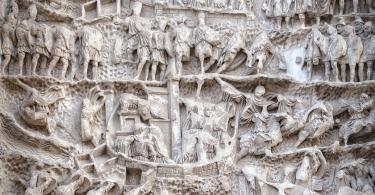
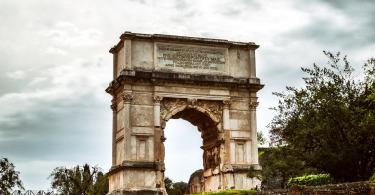
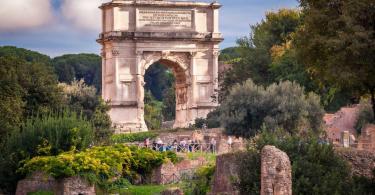
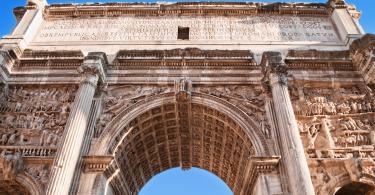
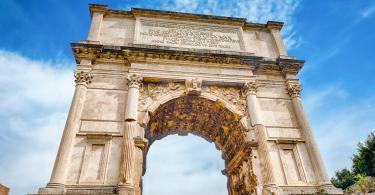
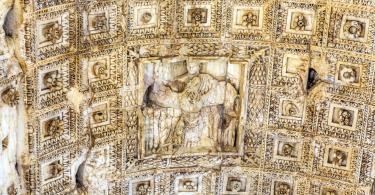
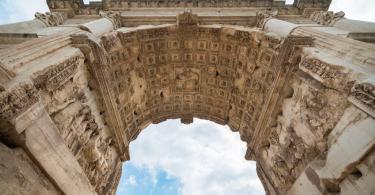
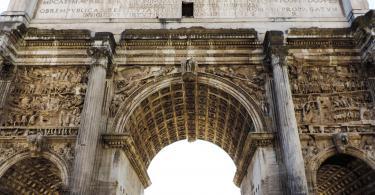
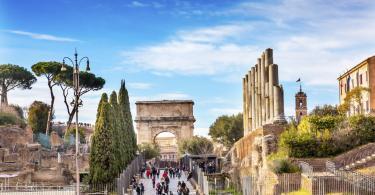
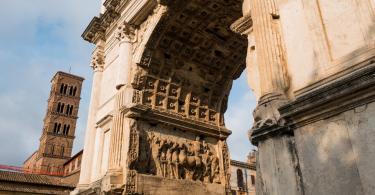
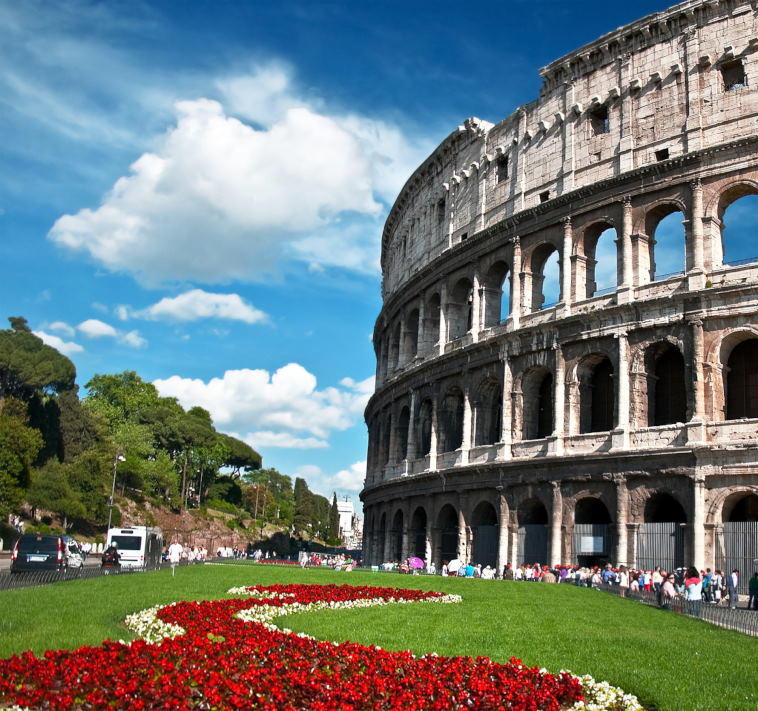
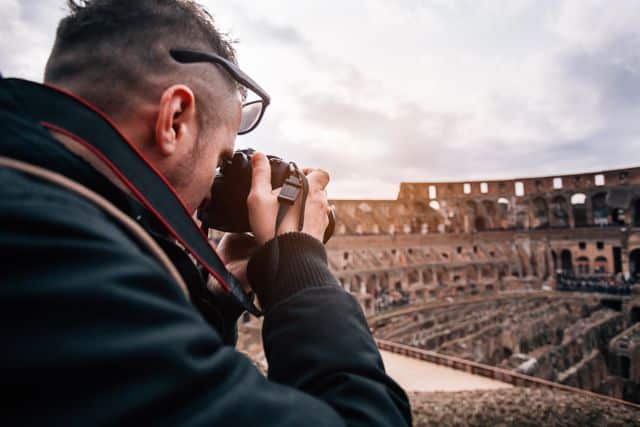
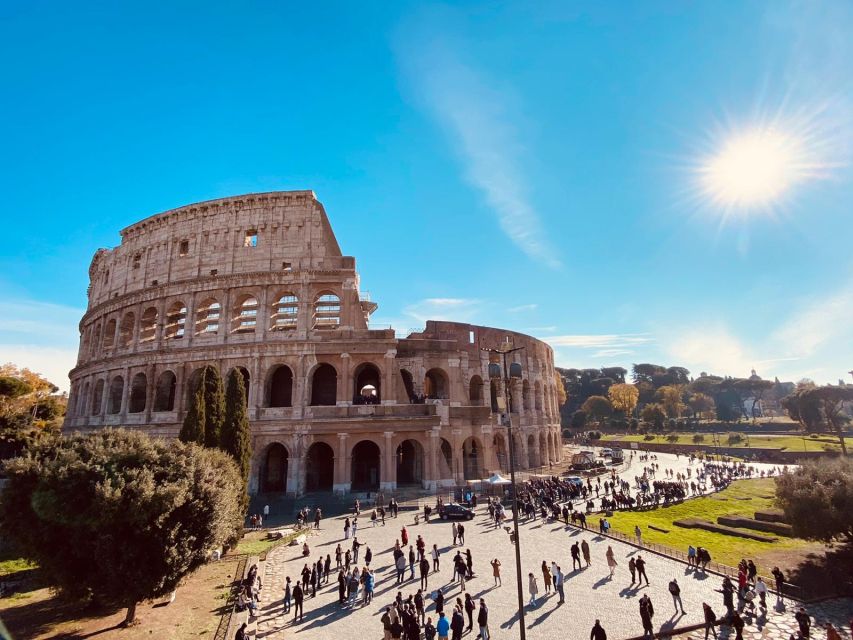
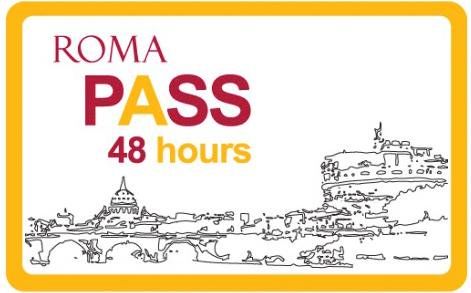
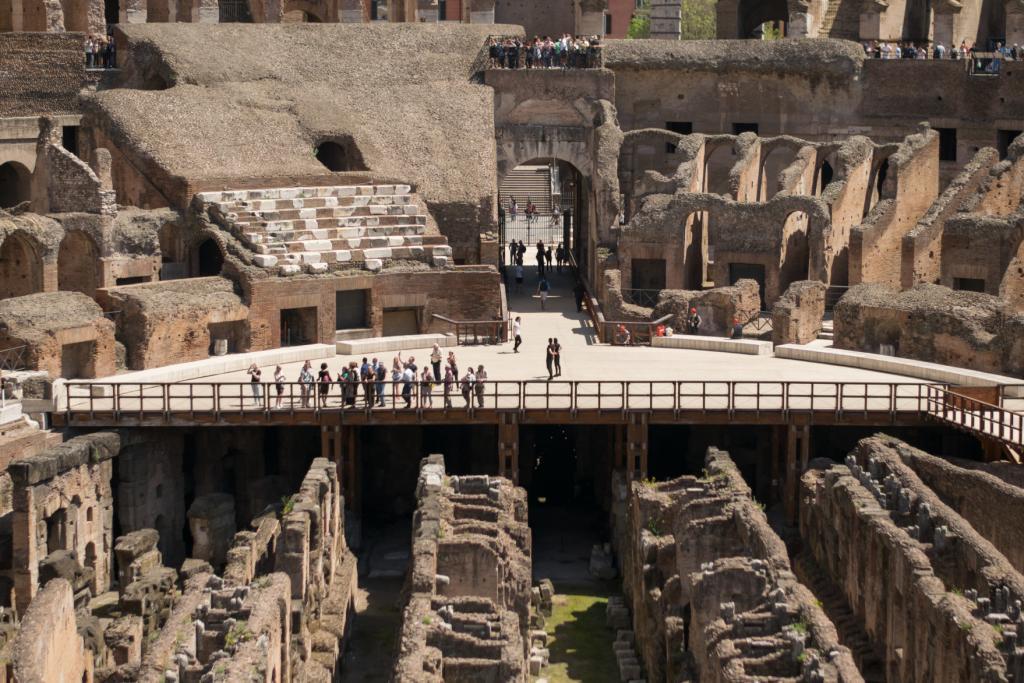
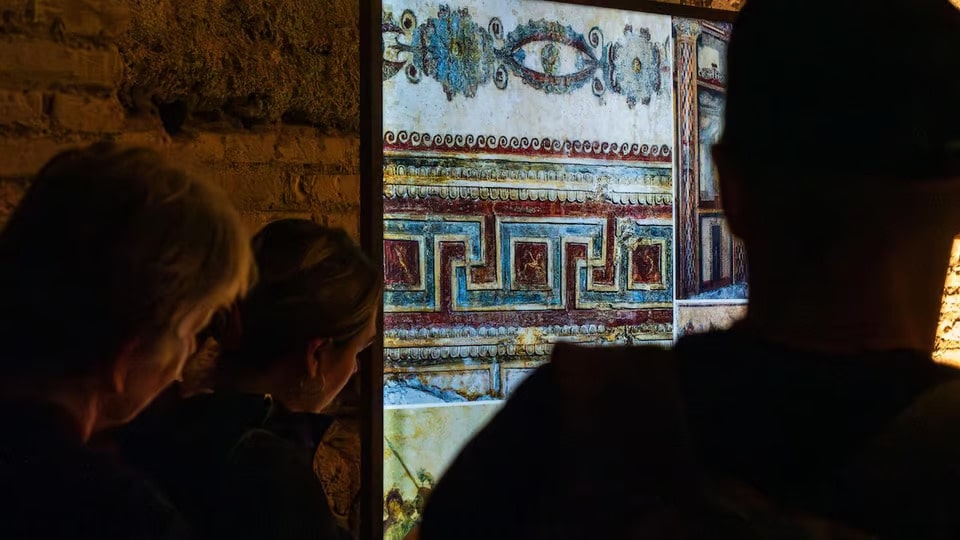
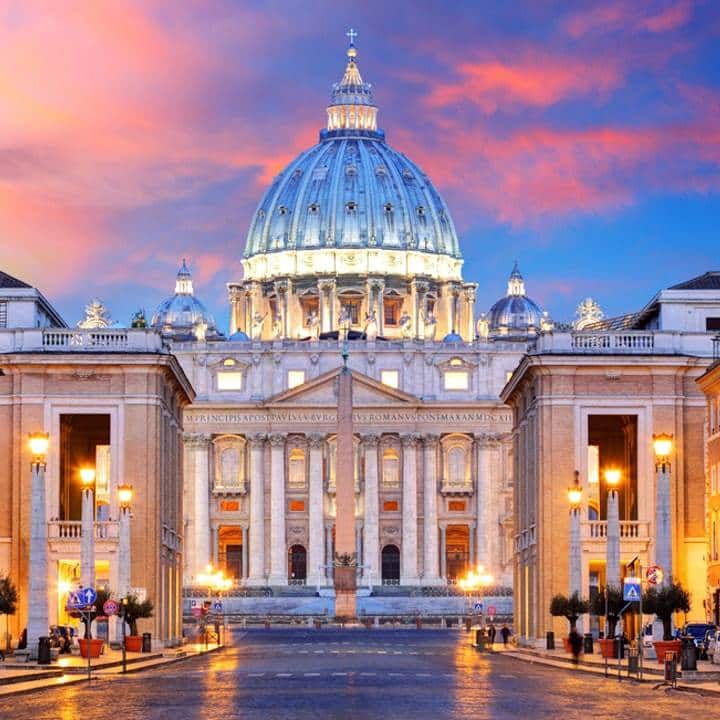
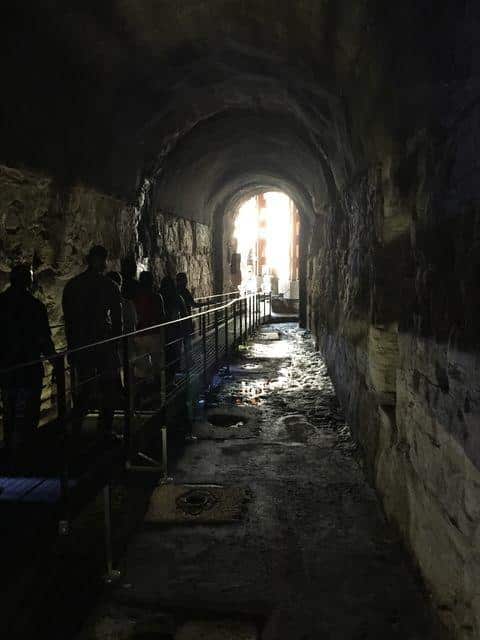
I’ve bought tickets for coloseom, platin and forum, but I don’t find where and how to buy tickets for Titus arch. Can you send me the specific link?
Hello,
The Arch of Titus is located within the Roman Forum archaeological area, so your existing tickets for the Colosseum, Palatine Hill, and Roman Forum already include access to the Arch of Titus. You don’t need a separate ticket to visit it.
Enjoy your visit! Let me know if you have any other questions.